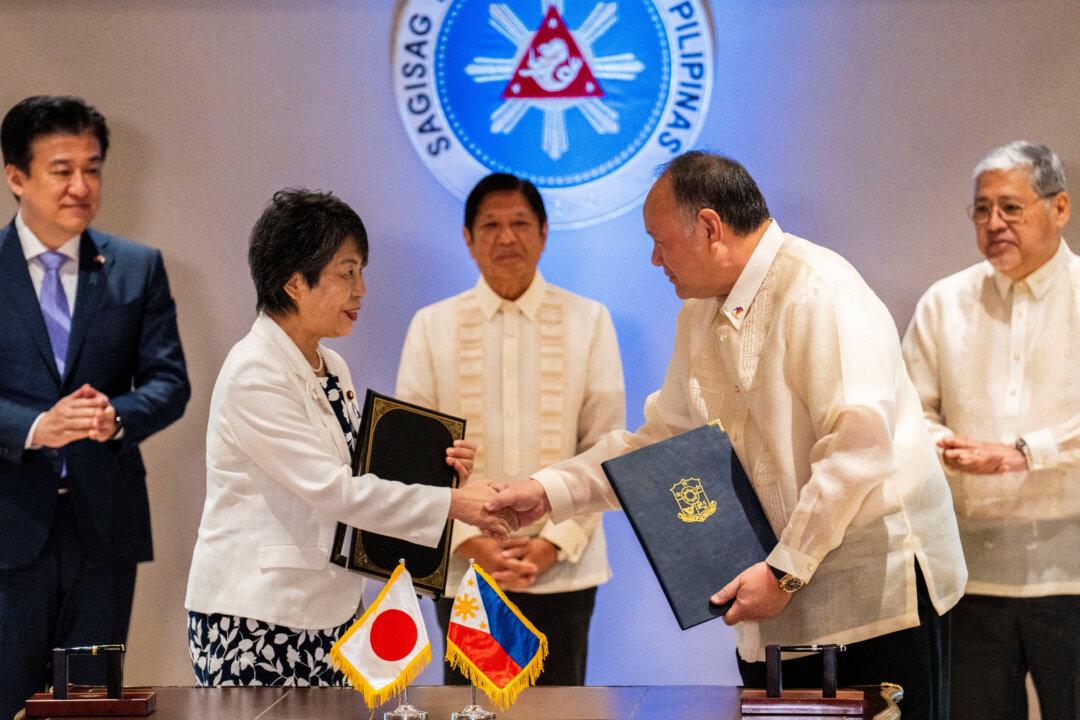The Philippines and Japan signed a defense pact on July 8 to boost their defense cooperation amid growing tensions with the Chinese communist regime in the Indo–Pacific region.
The Reciprocal Access Agreement, which the countries began negotiating in November 2023, was signed by Filipino Defense Minister Gilberto Teodoro and Japanese Foreign Minister Yoko Kamikawa in Manila. The pact allows the two countries to deploy their forces on each other’s territories for joint military exercises, including live-fire drills, and disaster response. The agreement with the Philippines is Japan’s first defense deal in Asia.




